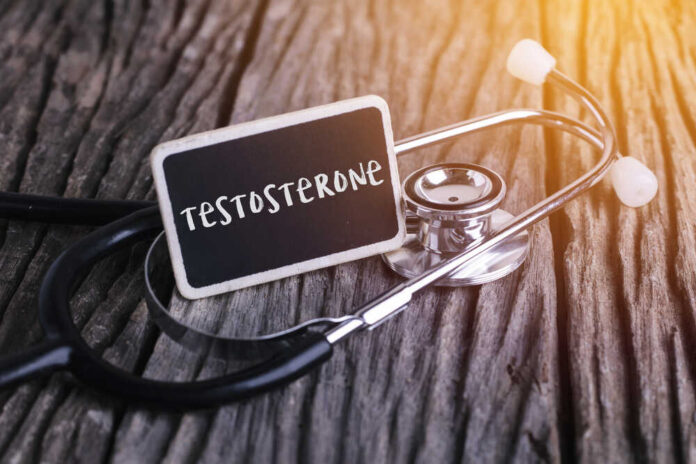
Testosterone is a hormone that plays a crucial role in both men’s and women’s health, although it is often more closely associated with men.
In men, testosterone is responsible for numerous functions within the body, including the development of male reproductive tissues, the promotion of secondary sexual characteristics, mood regulation, cognitive function, bone density, and the maintenance of a healthy body composition.
In women, it contributes to bone strength, muscle mass, and sexual function, albeit in smaller amounts compared to men.
Causes of Low Testosterone
Testosterone levels in men typically peak in their late teens and early 20s, after which they gradually decline. This natural decline is a normal part of aging, but other factors can exacerbate the issue.
These factors may include:
- chronic stress
- obesity
- poor sleep quality
- certain medications
- hypogonadism
- metabolic syndrome
Symptoms of Low Testosterone
Men with low testosterone levels may experience a variety of physical and emotional symptoms, including:
- Fatigue and lack of energy
- Reduced muscle mass and strength
- Increased body fat, particularly around the abdomen
- Decreased libido and erectile dysfunction
- Mood disturbances, such as irritability, depression, or anxiety
- Difficulty concentrating and impaired memory
- Reduced bone density and increased risk of fractures
- Insomnia or other sleep disturbances
Lifestyle Changes to Boost Testosterone Naturally
To support the body’s natural production of testosterone, you’ll need to maintain a lifestyle that promotes overall health and well-being:
- Regular Exercise: Engaging in regular physical activity, particularly resistance training, has been shown to increase testosterone levels. In addition, exercise can also help to reduce body fat, which is associated with lower testosterone levels.
- A Balanced Diet: Eat a nutrient-rich diet that includes an abundant variety of fruits, vegetables, nuts, seeds, whole grains, and healthy fats.
- Adequate Sleep: Sleep is essential for overall health and well-being, and it is particularly important for maintaining healthy testosterone levels.
- Stress Management: Chronic stress makes it harder for the body to regulate hormones. Stress-reduction techniques such as mindfulness, creative art, or therapy can help manage stress and maintain healthy hormone levels.
- Limit Alcohol Consumption: Reducing or avoiding alcohol intake may help to prevent a decline in testosterone levels.
Natural Supplements to Support Testosterone Production
In addition to making lifestyle changes, some natural supplements can also support healthy testosterone production. Some supplements that may be helpful include:
- Vitamin D: Vitamin D plays a vital role in hormone production and regulation. Research has shown a link between vitamin D deficiency and low testosterone levels. Ensuring adequate vitamin D intake through sunlight exposure, diet, or supplementation may help to support healthy testosterone levels.
- Zinc: Zinc plays a critical role in numerous bodily functions, including testosterone production. Studies have shown that zinc supplementation may help to increase testosterone levels in men with zinc deficiency.
- Magnesium: Magnesium is another essential mineral that is involved in various physiological processes, including testosterone production. Research suggests that magnesium supplementation may help to improve testosterone levels, particularly when combined with regular exercise.
- Ashwagandha: Ashwagandha is an herb used in Ayurvedic medicine to support overall health and well-being. Recent research has shown that ashwagandha supplementation can help to improve testosterone levels, reduce stress, and enhance overall quality of life.
- Fenugreek: Fenugreek is an herb that has been traditionally used for its purported testosterone-boosting properties. Some studies suggest that fenugreek supplementation may help to increase testosterone levels by improving insulin sensitivity and reducing the conversion of testosterone to estrogen.
Consulting a Healthcare Professional
While these natural methods can be helpful in boosting testosterone levels, don’t overlook the importance of consulting with a healthcare professional if you suspect that you have low testosterone.
Your doctor can help to determine the underlying cause of the issue and recommend appropriate treatments, which may include lifestyle modifications, natural supplements, or hormone replacement therapy, depending on the specific situation and individual needs.






















